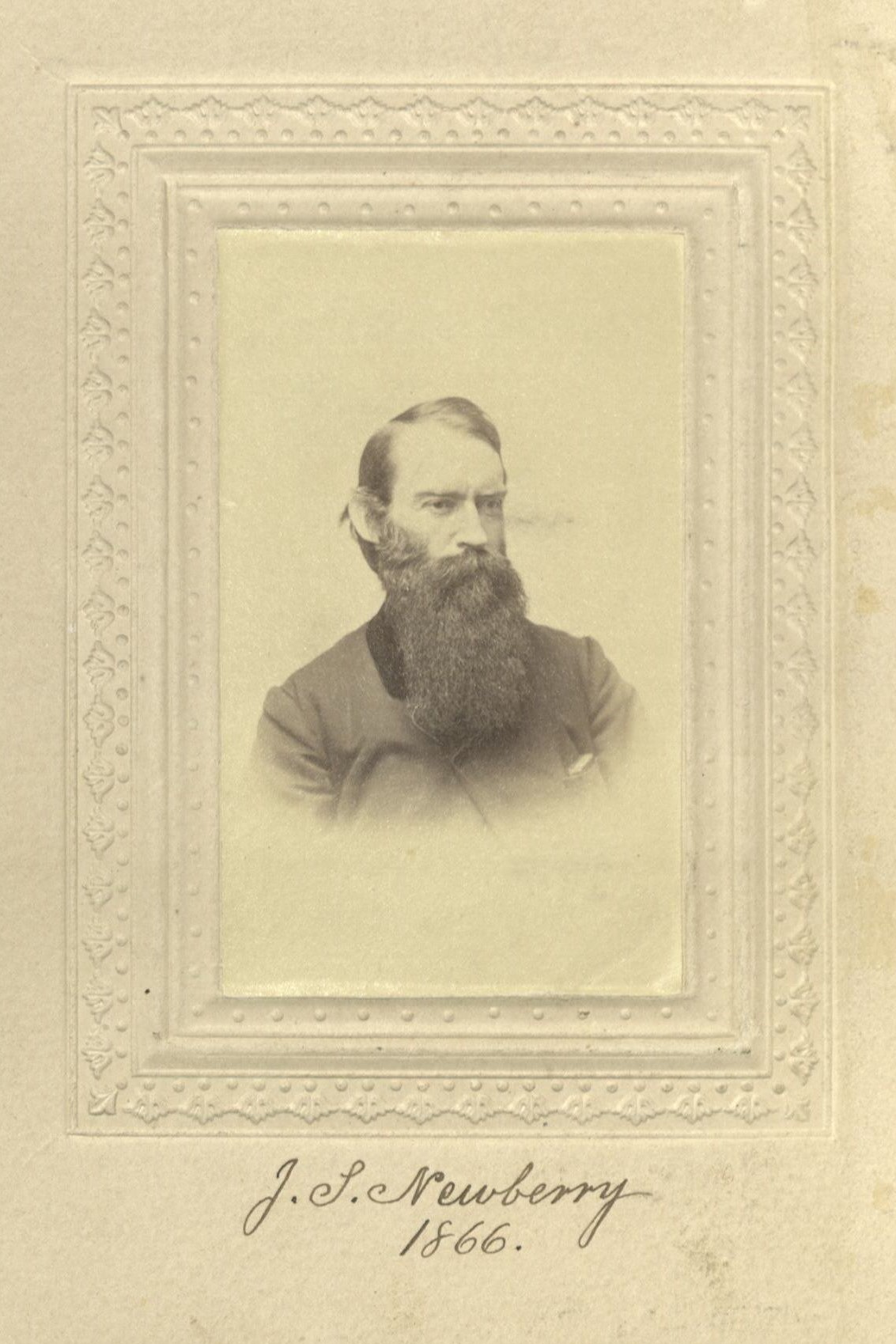Geologist
Centurion, 1866–1892
Born 22 December 1822 in Windsor, Connecticut
Died 7 December 1892 in New Haven, Connecticut
Buried Lake View Cemetery , Cleveland, Ohio
, Cleveland, Ohio
Proposed by George Templeton Strong and Lewis M. Rutherfurd
Elected 1 December 1866 at age forty-three
Seconder of:
Century Memorial
John S. Newberry had held the chair of Professor of Geology and Palæontology in the School of Mines, Columbia College, from 1866 until the time of his death. He was one of the most distinguished geologists in the country, with a very large experience, and had probably traveled more extensively in the mining regions of America than any other expert. His opinions were highly valued and much sought after. As an army officer he explored the territory lying between San Francisco and the Columbia River, and explored the Colorado and San Juan Rivers. He was State Geologist of Ohio; was also connected with the New Jersey Geological Survey, and was made Palæontologist to the United States Geological Survey in 1884. He was a member of many scientific societies in this country and Europe, and was named by Congress as one of the corporate members of the National Academy of Sciences. He was President of the American Association for the Advancement of Science, and of the New York Academy of Sciences, and was also President of the Torrey Botanical Society. Besides his reports on surveys, his published papers number more than two hundred titles. He was one of the founders of the United States Sanitary Commission, and made the first sanitary inspection of troops in the West. In September, 1861, he resigned from the army and became Secretary of the Western Division of the Sanitary Commission, and organized the whole distributing system of the Mississippi Valley. During the five years that he was in charge, he expended more than $800,000, distributed stores valued at $5,000,000, and gave food and shelter to more than one million soldiers, for whom no other provision was made. For his intelligent and self-denying work he was entitled to the thanks of the country. He was a delightful companion, and in his death the Club loses a valuable and distinguished member.
Henry E. Howland
1893 Century Association Yearbook

